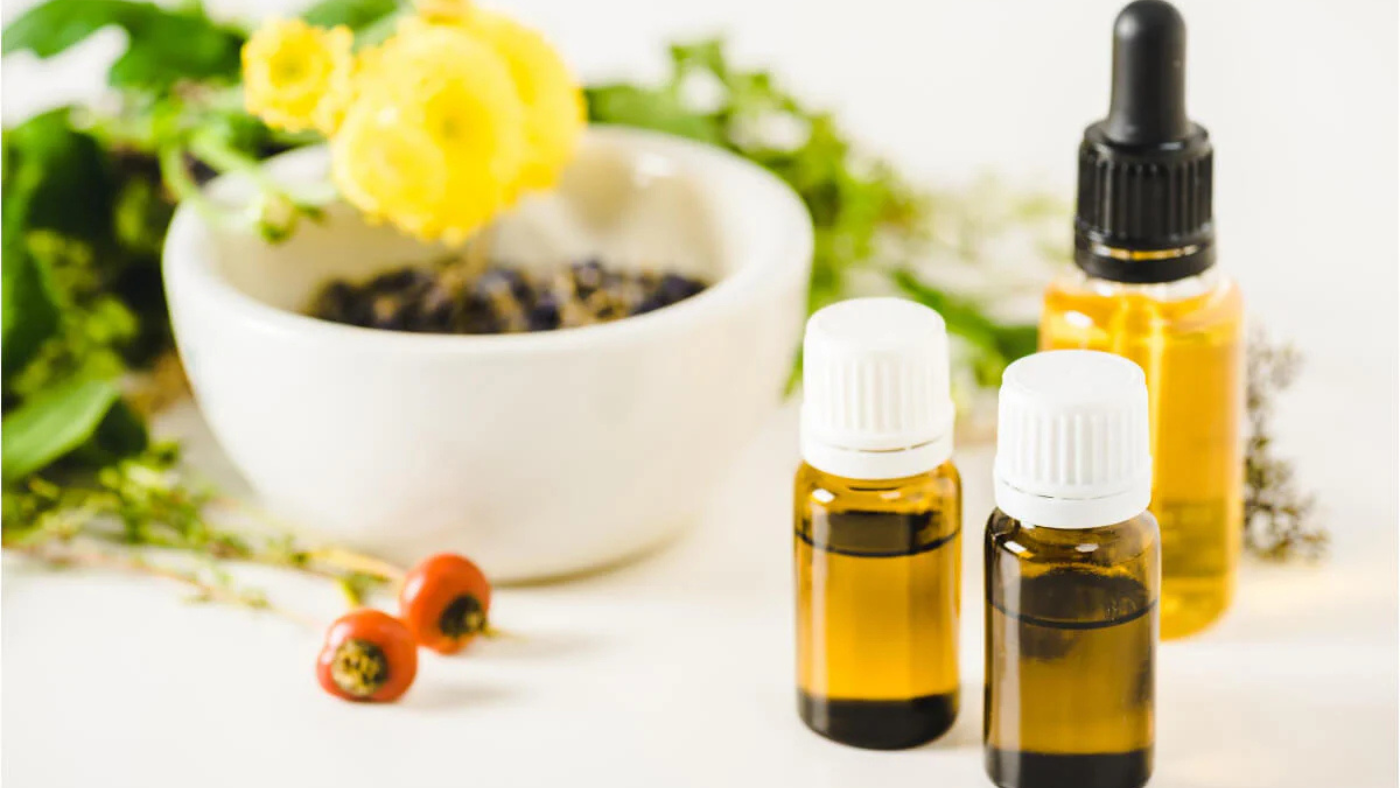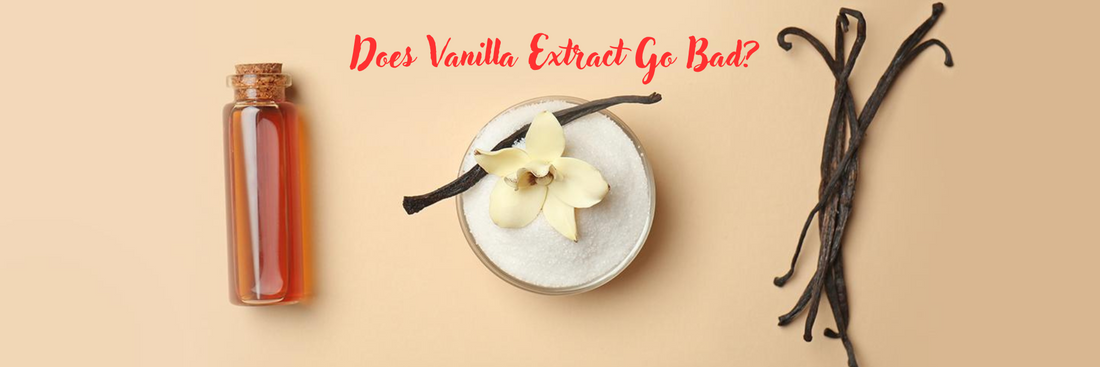Vanilla extract is a beloved kitchen staple known for its rich flavor and aroma. But does vanilla extract go bad? Understanding its shelf life and proper storage is essential for bakers and home cooks alike to keep recipes tasting fresh and avoid waste.
- How to Make Homemade Vanilla Extract: Recipe, Tips, and Bottling Guide
- How to Make Vanilla Extract Without Alcohol: The Guide for Health-Conscious Bakers
- Vanilla Powder vs. Vanilla Extract: What’s the Difference and When to Use Each
Why Understanding Vanilla Extract Shelf-Life Matters

Vanilla extract is an essential ingredient for bakers, chefs, and culinary enthusiasts around the world. Its rich, aromatic flavor enhances everything from cakes and cookies to sauces and beverages, making it a pantry staple in many kitchens. Because vanilla extract is used so frequently, understanding its shelf life is crucial to ensure your recipes always deliver the best possible taste.
Knowing how long vanilla extract lasts and the best ways to store it helps prevent waste and ensures you’re using fresh, high-quality ingredients. This knowledge is especially important for home bakers and food lovers who maintain a well-stocked pantry and want to maximize the longevity of their ingredients. Proper storage and awareness of spoilage signs can save you money and improve your cooking results.
How Long Does Homemade Vanilla Last? Understanding Homemade Vanilla Extract Shelf Life
How Long Does Homemade Vanilla Last?
Homemade vanilla extract is a favorite among those who prefer natural and customizable flavors. When prepared correctly, using quality vanilla beans and sufficient alcohol, homemade vanilla extract can last for several years. Generally, it is recommended to let your homemade vanilla extract infuse for at least 6 to 12 months to develop a deep, rich flavor.
Once fully infused, homemade vanilla extract typically has a shelf life of 2 to 3 years or more if stored properly. The alcohol content in the extract acts as a natural preservative, preventing bacterial growth and spoilage. However, the exact shelf life can vary depending on factors like alcohol percentage, storage conditions, and the cleanliness of your preparation process.
Homemade Vanilla Extract Shelf Life: Best Practices to Extend It
To ensure your homemade vanilla extract lasts as long as possible, follow these best storage practices:
- Use dark glass bottles or jars to protect the extract from light, which can degrade flavor and quality over time.
- Store in a cool, dark place such as a pantry or cupboard, away from heat sources and direct sunlight.
- Keep the vanilla beans fully submerged in alcohol to prevent mold growth and spoilage.
- Seal the container tightly after each use to minimize air exposure, which can reduce potency.
- Avoid refrigeration or freezing, as cold temperatures can cause cloudiness and affect the extract’s texture and flavor.
- Occasionally shake the bottle during the infusion process to evenly distribute flavor compounds.
Signs that your homemade vanilla extract may have passed its prime include a noticeable loss of aroma or flavor, discoloration, or visible mold. If you observe any of these, it’s best to discard the extract and prepare a fresh batch to maintain the quality of your recipes.
By following these guidelines, you can enjoy the full, rich flavor of homemade vanilla extract for years, making it a valuable and long-lasting addition to your kitchen essentials.
Does Real Vanilla Extract Expire? Shelf Life Explained

Shelf Life of Pure Vanilla Extract: Does Real Vanilla Extract Expire?
Pure vanilla extract, made from real vanilla beans and containing at least 35% alcohol, generally does not expire in the traditional sense. Thanks to its high alcohol content, pure vanilla extract acts as a natural preservative, preventing bacterial growth and spoilage. When stored properly in a cool, dark place, it can last indefinitely while remaining safe to use.
Although pure vanilla extract doesn’t spoil, its flavor quality may diminish over time, especially if exposed to heat, light, or air. Some users report that as the extract ages, the alcohol may evaporate slightly, which can sometimes intensify the vanilla flavor. To check if your vanilla extract is still good, perform a simple sniff test: if the aroma is weak or off, it might be time to replace it.
Shelf Life of Imitation Vanilla Extract Compared to Real Vanilla
Imitation vanilla extract, made from synthetic vanillin and typically containing much less alcohol (around 2-3%), has a shorter shelf life of about 3 to 4 years. After this period, imitation vanilla may lose potency and flavor quality. While it can often be used for up to a year past its expiration date, you may need to use more in recipes to achieve the desired flavor strength.
Unlike pure vanilla extract, imitation versions are more prone to flavor degradation and should be replaced once the aroma or taste noticeably fades.
Proper Storage of Vanilla Extract to Maximize Shelf Life

Best Storage Conditions for Vanilla Extract (Pure, Imitation, and Homemade)
To preserve the quality and extend the shelf life of both pure and imitation vanilla extracts, store them in:
- A cool, dark, and dry place, such as a pantry or cupboard away from heat sources like stoves or sunlight.
- Room temperature between 60°F and 80°F is ideal; avoid refrigeration or freezing as cold temperatures can cause cloudiness or affect texture.
- Keep the bottle tightly sealed after each use to prevent air exposure, which can degrade flavor.
Homemade vanilla extract should follow the same storage guidelines to maintain freshness and prevent spoilage.
Choosing the Right Containers for Storage
Using dark glass bottles or jars is highly recommended for storing vanilla extract, as they protect the extract from light exposure that can degrade flavor compounds over time. Glass is also non-reactive and helps maintain purity better than plastic containers.
While eco-friendly packaging is beneficial for sustainability, the key is that the container provides a good seal and shields the extract from light and air.
Avoiding Common Storage Mistakes That Reduce Shelf Life
- Do not store vanilla extract near heat sources such as ovens, microwaves, or direct sunlight, which accelerate flavor deterioration.
- Avoid leaving the bottle open or loosely sealed, as oxygen exposure can weaken the aroma and flavor.
- Do not refrigerate pure vanilla extract, as condensation and cold can cause cloudiness and affect quality.
- For homemade vanilla extract, ensure vanilla beans remain fully submerged in alcohol to prevent mold growth
Signs of Spoilage in Vanilla Extract: When to Discard Your Extract

Changes in Aroma and Flavor as Spoilage Indicators
One of the first signs that vanilla extract may have spoiled is a noticeable change in its aroma and flavor. Fresh vanilla extract typically has a strong, sweet, and rich vanilla scent. If the extract smells faint, sour, or off in any way, it may be past its prime. Similarly, a loss of flavor intensity or the presence of an unpleasant taste indicates that the extract is no longer good for use in recipes.
Visual Signs: Color Changes and Mold Formation
While vanilla extract naturally darkens over time, any sudden or unusual color changes such as cloudiness or sediment that wasn’t there before may indicate spoilage. The presence of mold or floating particles is a clear sign that the extract should be discarded immediately for safety reasons.
Safety Tips: When It’s Time to Toss Your Vanilla Extract
- Discard vanilla extract if it develops an off smell or taste.
- Throw away the extract if you see mold or unusual sediment.
- If the extract has been stored improperly (exposed to heat, light, or air) for a long time, consider replacing it even if no spoilage signs are obvious.
- When in doubt, it’s safer to replace vanilla extract to ensure the best flavor and food safety.
Pure vs. Imitation Vanilla Extract: What You Need to Know About Shelf Life and Quality

|
Feature |
Pure Vanilla Extract |
Imitation Vanilla Extract |
|
Composition |
Made from real vanilla beans, alcohol, and water |
Made from synthetic vanillin and other chemicals, lower alcohol content |
|
Shelf Life |
Indefinite when stored properly; flavor lasts 5-10 years or more |
Typically 3-4 years; flavor degrades faster |
|
Flavor Profile |
Rich, complex, natural vanilla aroma and taste |
Simpler, one-dimensional vanilla flavor; less depth |
|
Alcohol Content |
Minimum 35%, acts as a preservative |
Lower alcohol content (around 2-3%) |
|
Storage Needs |
Cool, dark, dry place; airtight dark glass container preferred |
Same as pure vanilla but more sensitive to degradation |
|
Price |
More expensive due to natural ingredients |
More affordable, mass-produced |
|
Usage Recommendations |
Best for baking, cooking, and gourmet recipes |
Suitable for everyday use and budget-friendly recipes |
Composition Differences and Their Impact on Longevity
Pure vanilla extract’s high alcohol content and natural vanilla bean components contribute to its long shelf life and resistance to spoilage. Imitation vanilla extract, with synthetic ingredients and lower alcohol, tends to lose flavor faster and has a shorter shelf life.
Flavor Profile and Usage Recommendations
Pure vanilla extract offers a deep, complex flavor ideal for recipes where vanilla is a star ingredient. Imitation vanilla is often used for cost-effective baking and cooking but lacks the nuanced flavor of pure extract.
Storage Needs for Each Type
Both types should be stored in a cool, dark place in tightly sealed containers. However, imitation vanilla extract requires more careful storage to prevent faster degradation of flavor.
Vanilla Packaging Solutions: Protecting Quality from Bean to Bottle
Frequently Asked Questions (FAQs)

How long does homemade vanilla last?
Homemade vanilla extract typically lasts 2 to 3 years when stored properly in a cool, dark place, with vanilla beans fully submerged in alcohol.
Does real vanilla extract expire?
Pure vanilla extract does not technically expire due to its high alcohol content, which preserves it indefinitely. However, its flavor quality may diminish over time.
What is the homemade vanilla extract shelf life?
The shelf life of homemade vanilla extract is generally 2 to 3 years, depending on storage conditions and alcohol content.
How should I store vanilla extract properly?
Store vanilla extract in a tightly sealed, dark glass container placed in a cool, dry, and dark area away from heat and sunlight. Avoid refrigeration.
Can I use vanilla extract past its expiration date?
Yes, pure vanilla extract can usually be used past its expiration date if it shows no signs of spoilage, but imitation vanilla extract may lose flavor and potency after expiration.
Conclusion
Vanilla extract, especially the pure kind, lasts a long time thanks to its alcohol content, but it can lose flavor if exposed to heat, light, or air. Store it in a cool, dark place with the cap tightly sealed. Always check for changes in smell or appearance before use. When in doubt, it’s better to replace it to keep your baking tasting its best.







